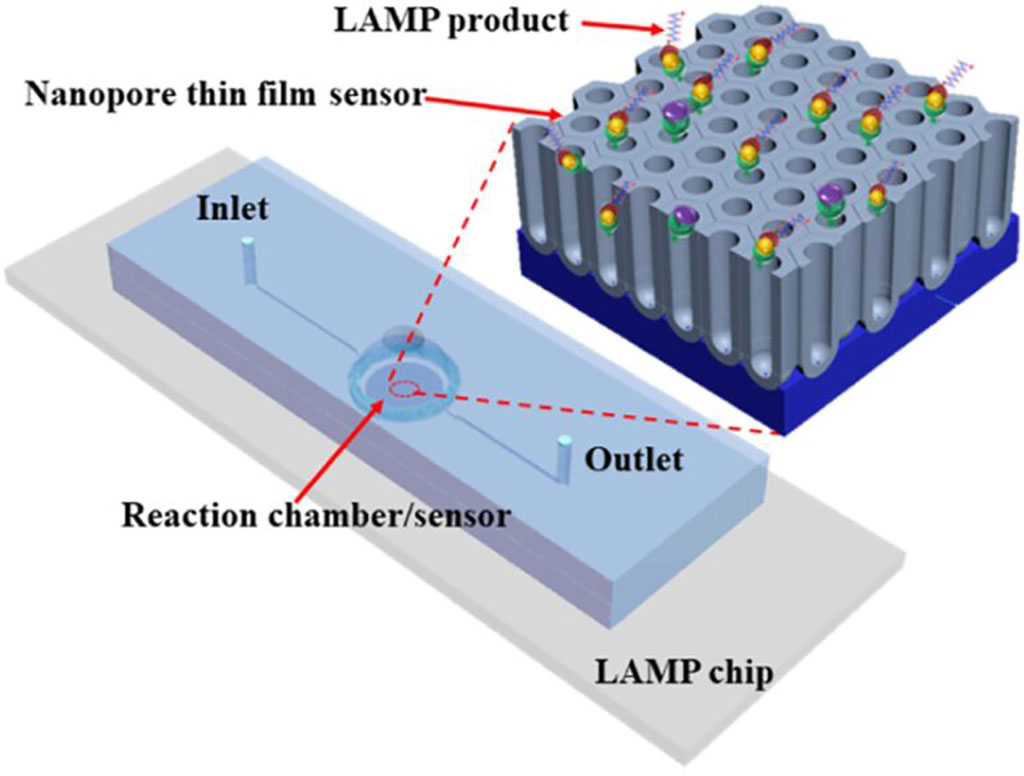New Sensor Chip Shows Promise for Rapid, Low-Cost POC Disease Diagnostics
Posted on 27 Jun 2023
The Loop-Mediated Isothermal Amplification (LAMP) technique is a popular method for identifying pathogens by amplifying their DNA. The detection of LAMP-amplified products, such as the DNA of pathogens, typically requires the use of fluorescent dyes to "label" these products, which can be expensive and have low sensitivity. Now, researchers have designed a new sensor capable of diagnosing pathogens without the need for these reagents and with a high degree of sensitivity. This new development also eliminates the time-consuming process of DNA purification, which often poses challenges for point-of-care applications.
Scientists at Texas A&M AgriLife Research (College Station, TX, USA) in collaboration with Iowa State University (Ames, IA, USA) have developed a sensor chip capable of identifying numerous disease-causing pathogens with ten times the sensitivity of existing techniques. The sensor chip eliminates the need for chemical dye reagents typically employed in diagnostics. The innovative chip consists of a nanopore thin-film sensor housed within a unique reaction chamber. Uniquely designed primers are immobilized on the nanofilm, causing the amplified LAMP products to bind to the sensor. The resulting signals can then be directly and easily measured using a portable spectrometer. The sensor delivers results within approximately 30 minutes. This new technology holds the promise of rapid, inexpensive point-of-care diagnostics in various sectors, including plants, food, animals, and human health, including the detection of foodborne pathogens, bird flu, and COVID-19.

In their study, the researchers used the innovative sensor to identify Phytophthora infestans, a pathogen that causes the highly destructive late blight disease, posing a significant threat to potato and tomato crops worldwide. The LAMP chip offers a new portable platform for pathogen detection, employing label-free sensors with exceptional sensitivity. The research team will now focus on increasing its sensitivity to the subattomolar levels or even lower. They aim to overcome the existing challenges in identifying and differentiating pathogen species and strains that share high sequence similarities. The team also plans to improve detection specificity and implement quantitative detection by integrating artificial intelligence and CRISPR gene-editing technologies. Their goal is to develop a feasible product for wide-ranging use in plant, animal, and human health point-of-care applications.
“This research advances technologies that have emerged as some of our greatest opportunities for improving agriculture, food safety and human health,” said Junqi Song, Ph.D., associate professor and plant immunity research lead with AgriLife Research. “Our publication represents a step toward realizing these powerful tools against diseases.”
Related Links:
Texas A&M AgriLife Research
Iowa State University














